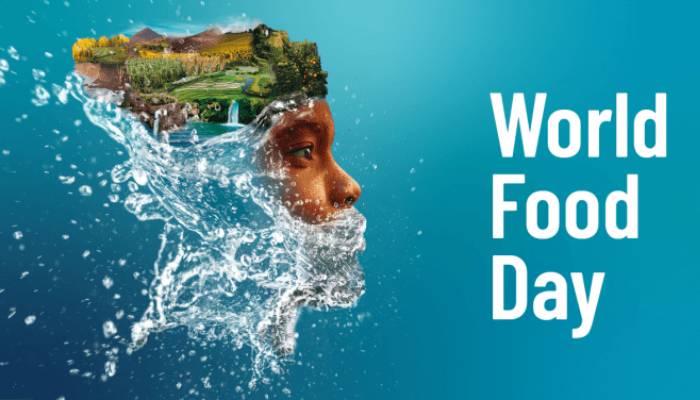2023 World Food Day: Water is life

The theme of this year’s World Food Day celebration, as promoted by the United Nations Food and Agriculture Organization ( FAO) which was held on October 16, 2023 beamed the spotlight on water as the foundation for life and food. The global awareness was predicated on, Water is Life,Water is Food.Leave no one behind.
Viewed from a broad perspective, water is essential to our daily affairs as it covers over 50 % of our bodies, assists in the production of what we eat and supports livelihoods. But it is not infinite. That explains why we should not take it for granted. Our food choices and how the items are produced all affect water. Together, we can take action for food and be the change.
The tips and actions for individuals, governments, private companies and corporation, schools, the civil society and academia dovetails towards working together towards a world that is both water and food secure. That is, instead of taking water for granted. Indeed, we all should manage it wisely.
Similarly, according to UNICEF, nearly one-third of Nigerian children do not have enough water to meet their daily needs. According to Analysis by Water Security for All initiative several communities depend on surface water, from unimproved sources. And the children bear the brunt, especially when water runs dry, or during the period of draught and also during floods that affect safe water sources. Some of them have to spend over 30 minutes to access drinkable water.
This preventable situation is unacceptable in a land abundantly blessed with fresh water of 286,200 MCM, though 23% of such comes from outside Nigeria. This is therefore, a challenge for our political leaders at the federal and state levels to assess the true situation of safe water scarcity at each local government.
Furthermore, the Ministry of Agriculture and Water Resources should should identify different strategies needed to supply safe water to the citizens, depending of course, on the terrain and soil texture. Is it the sinking of boreholes, improvement on safe water supply and expansion to the nooks and crannies of the country.
The answers should be reflected in the budgetary allocations and more importantly, the action taken for implementation thereof. This of course, should take the interest of our political leaders instead of coming up with laws that are ostensibly aimed at taking over water resources from the local communities for the benefits of herdsmen.






